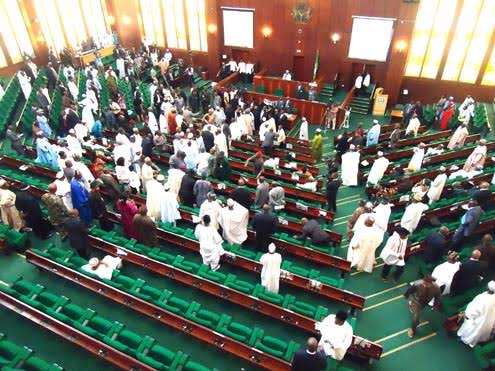Infectious Disease bill by Infected Lawmakers

By Femi Oluwasanmi
The latest controversial bill in the chronicle of the 9th National Assembly on the pretext of proffering measures to curtail the spread of infectious diseases such as the Corona virus which has killed thousands of people and crippled the economy of many nations across the globe once again shows the level at which the “power drunk disease” has eaten deep the fabric of Nigerian democratic ethos.
On 28th April, 2020, the Speaker of the House of Representatives, Femi Gbajabiamila, and two of his colleagues Pascal Obi and Tanko Sununu, sponsored a bill seeking to empower the Federal Government to convert any property in the country, including private properties, to isolation centres. The bill, titled, ‘Control of Infectious Diseases Bill 2020’, hurriedly passed the first and second readings on the same day thereby creating great suspicion among Nigerians.
In fact, to some people the bill was covertly motivated by the foreign powers in order to use Nigeria as a testing ground for COVID-19 vaccine when finally discovered. While some see it as part of the manifestations of the “power drunk syndrome” which has been an integral part of the 9th National Assembly before the outbreak of COVID-19.
In similar manner, some opined that the bill was plagerized from the Singapore’s law just like the way the anti-social media bill was imported from the same country before it silently sinked to the dustbin of history after so many criticisms.
Meanwhile, the sponsors of the bill claimed the archaic nature of the Quarantine Act and the incapacitation of the Nigerian Centre for Disease Control (NCDC) in the war against COVID-19 especially, putting into consideration the numbers of patients that have absconded isolation centres across the country as the reason for the proposal.
However, looking at some of the clauses contained in the bill, the bill seems to be unfit for a democratic country like Nigeria. Part of the clauses that seems to be draconian in nature are section 15, 79, 13, among others which negates some of the fundamental human rights stipulated in the 1999 Constitution of the Federal Republic of Nigeria.
For instance, the section 15 (1) of the bill gives power to the Minister of health to the declare any premises as an isolation centre without providing alternative for the owner in case the owner find it difficult to find a place to stay after the seizure.
Similar provision is in the subsection (4)(5)(6) which empower the Director General, Health worker and Police Officer to the extent of arresting any person who leaves or attempts to leave or is suspected to have left an isolation area in contravention of an order under subsection (3) without warrant of arrest.
Likewise, the Section 79 (3) which prescribes a N500,000 fine and six-month jail term for persons who violate the quarantine restriction or refuse to take vaccinations in case of an outbreak or a suspected outbreak of an infectious disease in Nigeria such as the ravaging COVID-19 without considering the circumstances that might have propelled the person’s behavior.
Probably, this might be part of the reasons a former Senator from Kogi State, Dino Malaye while showcasing the documents of the legal action taken against the National Assembly in respect of the bill on his twitter handles described the bill as a wicked bill.
In a democratic society like Nigeria where the plight of the people ought to be the driving force behind the action and inaction of the lawmakers, this kind of bill ought not to have come to the floor of the National Assembly not to talk of escaping first and second readings.
Though, part of the responsibilities of the National Assembly is to make laws that will engender healthy living, but looking at the high level of poverty in the land the first issue that ought to be at the front burner of the national Assembly is “Anti-Poverty Bill” because most of the people that violate the government’s directive did that in scrambling for daily bread.
Particularly, deducing from the comments made by some of the COVID-19 patients that left their isolation centres to protest the ill treatments received from the Gombe State Government in the recent time.
The same thing is applicable to most of the breadwinners of the family in the isolation centres who never envisage this pandemic but find themselves in the Isolation centre without any tangible palliative from the government to take care of those left at home.
Most civil servants are obeying the lockdown and stay home order by the government because they know that at the end of the month their salary will be paid. If not, the story would have been a different ball game.
Therefore, the lawmakers should replace the draconian clauses in the proposed bill with tangible palliative that will be able to sustain the family of the infected person particularly for the period in the isolation centre instead of creating an avenue for the desperate politicians to punish or arrest perceive enemy or opposition even on the eve of the election in the guise of infectious disease control.
Femi Oluwasanmi, writes from Ibafo, Ogun State.